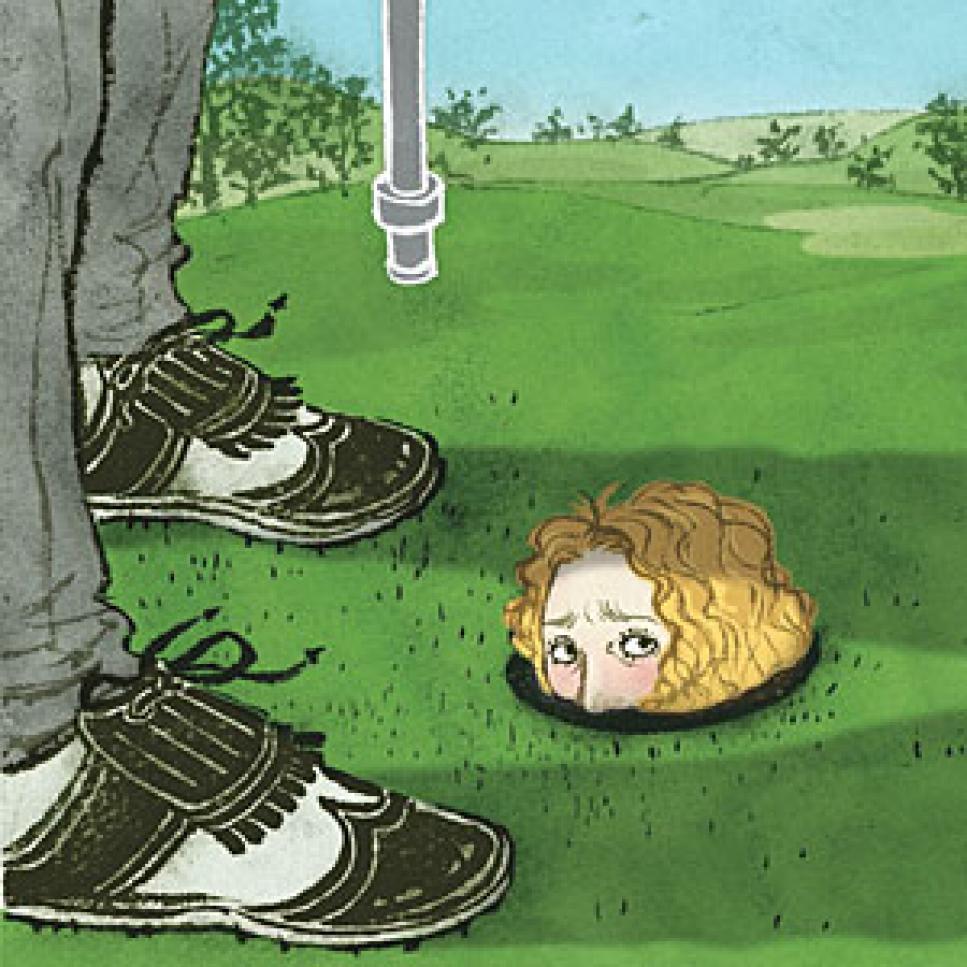News
Women Golfers: Wired To Fail?

Have you ever wondered why such a high percentage of women leave the game of golf before they've had a chance to become any good at it? If you said money, time and family obligations, you're probably right. But a graduate study by British PGA Professional Sue Shapcott out of Arizona State University shows that new women golfers are also predisposed to believe they're going to fail at the game.
Shapcott, who played on 1988 GB&I Curtis Cup team before moving to the U.S. in 2000 to teach for Hank Haney's Dallas academy, is now a doctorate student in the Educational Psychology program at ASU. "My emphasis is on learning and motivation, and I chose to frame the attrition rate of women golfers in motivational theory for my master's thesis," she explains. The results of Shapcott's study offer one of the first pieces of experimental research to address why such a large number of women don't persist in golf.
Shapcott examined over 300 male and female golfers (ranging from beginners to advanced players) for her thesis. "I used an attributional scale, which basically means you ask people how they explain the outcomes of their performance," Shapcott says. "Attribution theory looks at whether you give adaptive or maladaptive reasons for your performance. An adaptive attribution is one you feel you have control over, so the next time you go out and play, you feel you're going to be able to do something about it. A maladaptive attribution would be one where you feel you have no control over what's happening with your game." Basically, maladaptive thinkers don't see the point in trying to practice or improve on anything, since they don't believe they can affect what caused their poor performance.
The study results were startling in their consistency. "What I found was that beginner male golfers gave significantly more internal-control attributions than beginner women," Shapcott says. "And for women who had played longer, their attributions became increasingly more adaptive. So, either the women who give really horrible attributions are the ones that drop out of the game -- or if they stick to it, then their attributions change. But it's likely that the ones that drop out have really bad attributions to begin with."
Shapcott's study also found that most men, even rank beginners, never perceive themselves as being unsuccessful, while most women do. "That alone is interesting, and from a motivational perspective speaks volumes," Shapcott says. "We have data that shows that if you have a sense that you can be successful at something, it increases your motivation. So the obvious place to start for women in golf is to at least give them a chance to feel successful."
It's hard to say if the reason behind this different way of thinking biological or social, but Shapcott has her theories. One of the possible culprits she points to is something called "Stereotype Threat."
"'Stereotype Threat' is when we belong to a group that's expected to underperform, and when we're reminded of that in either a conscious or an unconscious way, then we do underperform," she says. "Studies have been done with women in math and science, with white men playing basketball, with African-Americans and academics, and it's a real phenomenon. So, in my mind, women when they go and play golf are always under this stereotype threat, based on this culture and this environment."
The good news is that the negative thought patterns and behaviors can be changed. "Attributions are very malleable," Shapcott says. "Just by giving people a different attribution for what they've done, they tend to adopt those. So if you played badly and you said 'I'm terrible, I'm never going to hit it far enough, the course is too difficult' -- those are very maladaptive and bad attributions. But by me saying to you, 'Let's look at changing something in your swing a little bit, maybe get you on a program where you can get stronger, and we can do something about hitting it farther,' then you can adopt those more adaptive attributions."
Shapcott is taking her thesis to the next level by using it as a springboard for her doctorate on how to effectively improve the way we teach golf to women -- and as a result, keep more of them in the game. "Women golfers take more lessons than any other percentage of the golfing population, so as golf instructors, we've got a really good chance of doing something about their motivation and the attributions they make." For the next 18 months, Shapcott is studying the way pros interact with their female students. "I'm developing a scale, first of all to measure how golf instructors stereotype female golfers -- what stereotypes exists and how strongly they endorse them -- and then I observe lessons and get people to log the lessons that they give, so that we code the kind of feedback they give." Shapcott's results could help shape the way women golfers are taught the game in the future.
Would you like to find out if you are an adaptive or maladaptive thinker? Then fill out the survey for Shapcott's study here
. Your anonymous answers will also help add to Shapcott's research.